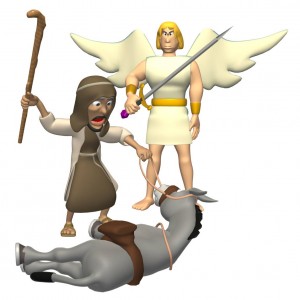Balaam — A Subverter of Divine Gifts and a Prophet of Babylon
The name Balaam means “destruction of people.” The Hebrew word bela means “destruction, confuse, confound.” The Hebrew word am means people, tribe, nation. The name Balak means “waster, to annihilate.” He was king of Moab; distant cousins to Israel through Lot, Abraham’s nephew.
Balaam was from Pethor, a city located on the Northern Euphrates and Tigress Rivers areas called Mesopotamia in modern Syria and including modern Iraq to the south.
Balaam was a soothsayer or diviner (one who foretells or predicts events, Josh 13:22). The ArtScroll Stone Edition Chumash says that Balaam was a sorcerer, necromancer or wizard (one who consults evil spirits) and that the sublime prophecies he uttered over Israel were but temporary aberrations that YHVH granted him for the honor of Israel (Ibid., p. 863). These prophecies also served to glorify YHVH in the eyes of the nations. Other commentators consider Balaam to have been a true prophet of YHVH gone bad. Some consider him to have been a bad prophet going good (i.e. learning obedience to YHVH). Some consider him to have been a false prophet seeking personal fame and fortune who had prophetic abilities that he misused by mixing paganism and the truth of YHVH. This seems to be the Scriptures’ view of Balaam, for 2 Peter 2:15 indicates that Balaam had some knowledge of the truth, but turned away from it loving instead the “wages of unrighteousness.” In the book of Revelation, we learn that Continue reading






